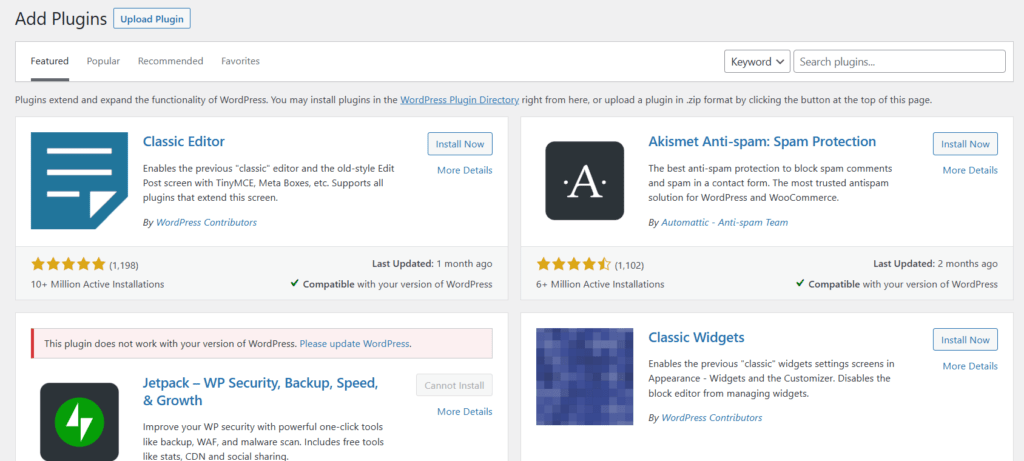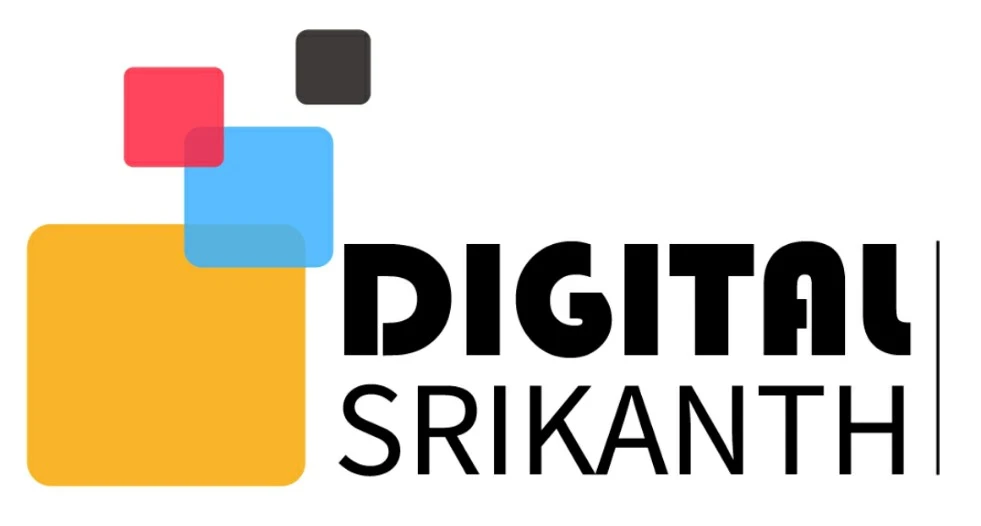WordPress is one of the most popular tools for creating websites. It powers more than 40% of all websites on the internet. Whether you are starting a blog, building a business website or creating an online store, WordPress can be a great choice. But like any tool, it has its good and bad sides. This article explains the Advantages and Disadvantages of WordPress in simple words to help you decide if it is the right platform for you.
What is WordPress?
WordPress is free software that helps you make websites. It doesn’t require advanced computer skills, so even beginners can use it. It was launched in 2003 and is now used for many types of websites, including blogs, e-commerce stores, portfolios, and business sites.
Let’s explore the 10 Advantages and Disadvantages of WordPress to understand it better.
10 Advantages of WordPress
1. Easy to Use

WordPress is simple to use, even for people who are not tech-savvy. The dashboard is clear and easy to navigate. You can quickly add pages, posts, and pictures without needing to learn coding.
For example, if you want to start a blog, WordPress gives you a text editor where you can type your content, add images and format everything easily.
2. Lots of Plugins

Plugins are small tools you can add to your website to give it more features. WordPress has over 60,000 plugins to select from. Whether you need contact forms, SEO tools, or online shopping features, there’s a plugin for it.
For example, the WooCommerce plugin lets you turn your website into an online store, and Yoast SEO helps you make your content search-engine friendly.
3. SEO-Friendly

WordPress makes it easier to rank higher on Google and other search engines. It has features like customizable URLs, tags, and plugins to improve your SEO.
For instance, plugins like Yoast SEO or All in One SEO Pack help you optimize your content, such as by improving the use of keywords like “Advantages and Disadvantages of WordPress.”
4. Many Themes to Choose From

Themes control how your website looks. WordPress has thousands of free and paid themes for different styles and purposes. You can pick a theme that matches your website’s purpose and easily change how it looks.
For example, the Astra and Divi themes are popular because they come with pre-made designs that you can customize.
5. Big Support Community
WordPress is used by millions of people, so there’s a large community to help you. You can find answers to almost any question by searching forums, watching tutorials, or reading guides.
For example, if your website has a problem, someone in the community likely has a solution.
6. Can Grow with Your Needs
WordPress works well for both small websites and large ones. As your website grows, you can add more features and improve its performance.
For example, small blogs and big websites like TechCrunch both use WordPress.
7. Works on Mobile Devices

Most WordPress themes are mobile-friendly, meaning your website will look good on phones and tablets. This is important because many people browse websites on their phones.
Themes like OceanWP and GeneratePress are examples of mobile-friendly themes.
8. Low Cost

WordPress is free, and you can find many free themes and plugins. While you may need to pay for hosting or premium features, it’s still affordable compared to hiring a developer.
For example, a small business can create a professional-looking website using free tools on WordPress.
9. Multilingual Options
You can create a website in multiple languages using WordPress plugins like WPML or Polylang. This is useful for businesses that want to reach people in different countries.
For instance, an online store can have English, Spanish, and French versions of its website.
10. Regular Updates
WordPress is constantly updated to improve features and security. This keeps your website modern and safe from new threats.
For example, the Gutenberg editor, introduced in recent updates, makes it easier to design pages with drag-and-drop tools.
10 Disadvantages of WordPress
1. Security Risks

Because WordPress is so popular, it’s a common target for hackers. If you don’t keep your plugins, themes, and WordPress version updated, your site could be at risk.
For example, outdated plugins can make your website vulnerable to malware. Security plugins like Wordfence can help, but regular updates are a must.
2. Can Be Slow

WordPress websites can load slowly if not optimized. This can happen if you use too many plugins, upload large images, or have a poor hosting provider.
To speed up your site, use caching plugins like WP Super Cache and optimize your images with tools like Smush.
3. Too Many Plugins Can Cause Problems
While plugins are helpful, using too many can slow down your website or cause errors. Some plugins might not work well together.
For example, having two SEO plugins can create conflicts and cause issues on your site. It’s best to only install the plugins you really need.
4. Advanced Features Can Be Hard
While basic features are easy, advanced customization may require coding knowledge. If you want to make big changes, you might need to learn coding or hire a developer.
For instance, creating a custom theme or feature may require knowledge of HTML, CSS, and PHP.
5. Needs Regular Maintenance
You need to keep WordPress, your plugins, and your themes updated. Skipping updates can lead to problems or make your site unsafe.
For example, an outdated plugin could stop working or make your site vulnerable to hackers. Regular backups are also important.
6. Hosting Matters
Your website’s performance depends a lot on your hosting provider. If your hosting is slow or unreliable, your website will suffer.
For instance, shared hosting might not handle a lot of visitors at once, which can cause your site to crash.
7. Harder to Manage Large Websites
If your website has a lot of pages or content, managing it can become difficult. You might need extra tools or custom solutions.
For example, a news website with thousands of articles may need advanced search and categorization features.
8. Limited Features Without Plugins
WordPress doesn’t have all the features you might need built-in. You’ll need to add plugins or custom code for things like advanced analytics or membership systems.
For instance, if you want a customer relationship management (CRM) system, you’ll need to use a plugin or external tool.
9. Compatibility Problems
Sometimes, updates to WordPress, themes, or plugins can cause parts of your site to stop working. This can happen if a plugin isn’t updated to work with the latest version of WordPress.
For example, a theme update might conflict with an older plugin, breaking some features on your site.
10. No Dedicated Support

WordPress doesn’t come with customer support. While the community is helpful, you might need to hire a professional for complex issues.
For example, if your website crashes, you might have to pay a developer to fix it.
Real-Life Examples
Advantage in Action: Small Business Websites

A small bakery can use WordPress to create a website with a free theme and plugins. They can add a contact form for orders and post updates about new products. It’s affordable and easy to manage.
Disadvantage in Action: High-Traffic Websites

A news website with many visitors might face problems if it doesn’t have good hosting or caching. During busy times, the site could crash without proper optimization.
Is WordPress Right for You?
By looking at these Advantages and Disadvantages of WordPress you can decide if it’s the right tool for your needs. WordPress is great for small businesses, bloggers, and anyone looking for an affordable way to create a website. However, it requires regular maintenance and can be tricky for advanced features.
Conclusion
WordPress is a powerful tool for creating websites. It’s easy to use, affordable and highly customizable. But it’s not perfect. It has some challenges like security risks and the need for regular updates. By understanding these Advantages and Disadvantages of WordPress you can decide if it’s the best option for your website.
Whether you’re starting a small blog or a big online store, WordPress can help you create a site that fits your needs.
Frequently Asked Questions
1. What are the main advantages of using WordPress for my website?
WordPress is easy to use, highly customizable, SEO-friendly, and offers a large community for support. It’s also free to use, with many themes and plugins available to enhance your site’s functionality.
2. Are there any security concerns with WordPress?
Yes, WordPress can be vulnerable to hackers if not maintained properly. It’s essential to keep themes, plugins, and the WordPress core updated regularly and use security plugins to protect your site.
3. What are the disadvantages of WordPress for large websites?
WordPress may struggle with very large websites that require complex functionality. As your site grows, performance can slow down, and you may encounter issues with plugin compatibility.
4. How can WordPress help with SEO?
WordPress is SEO-friendly and includes features like clean URL structures, easy content management, and plugins like Yoast SEO to help optimize your site and improve search engine rankings.
5. Is WordPress free to use?
Yes, WordPress is open-source and free to use. However, you will need to pay for hosting, a domain name, and possibly premium themes or plugins if you want extra features or customization.
Images By: FreePik

